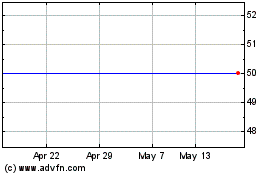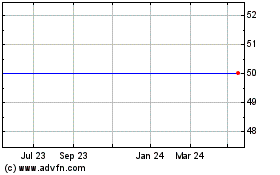Each Director who is appointed by the Directors (and who has not
been elected as a Director of the Company by the members at a
general meeting held in the interval since his appointment as a
Director of the Company) is to be subject to election as a Director
of the Company by the members at the first Annual General Meeting
of the Company following his or her appointment. At each Annual
General Meeting of the Company one third of the Directors for the
time being, or if their number is not three or an integral multiple
of three the number nearest to but not exceeding one-third, are to
be subject to re-election.
The Companies Act allows shareholders in general meeting by
ordinary resolution (requiring a simple majority of the persons
voting on the relevant resolution) to remove any Director before
the expiry of his or her period of office, but without prejudice to
any claim for damages which the Director may have for breach of any
contract of service between him or her and the Company.
A person also ceases to be a Director if he or she resigns in
writing, ceases to be a Director by virtue of any provision of the
Companies Act, becomes prohibited by law from being a Director,
becomes bankrupt or is the subject of a relevant insolvency
procedure, or becomes of unsound mind, or if the Board so decides
following at least six months' absence without leave or if he or
she becomes subject to relevant procedures under the mental health
laws, as set out in the Company's articles of association.
Powers of the Directors
Subject to the provisions of the Companies Act, the memorandum
and articles of association of the Company and any directions given
by shareholders by special resolution, the articles of association
specify that the business of the Company is to be managed by the
Directors, who may exercise all the powers of the Company, whether
relating to the management of the business or not. In particular,
the Directors may exercise on behalf of the Company its powers to
purchase its own shares to the extent permitted by
shareholders.
Auditor
Grant Thornton UK LLP offers itself for reappointment as
auditor. In accordance with S489(4) of the Companies Act 2006 a
resolution to reappoint Grant Thornton UK LLP as auditor and to
authorise the Directors to fix their remuneration will be proposed
at the forthcoming Annual General Meeting.
On behalf of the Board.
David Frank
Director
29 May 2014
Corporate Governance
The Board of Triple Point Income VCT plc has considered the
principles and recommendations of the Association of Investment
Companies Code of Corporate Governance (AIC Code) by reference to
the Association of Investment Companies Corporate Governance Guide
for Investment Companies (AIC Guide). The AIC Code, as explained by
the AIC Guide, addresses all the principles set out in the UK
Corporate Governance Code (September 2012), as well as setting out
additional principles and recommendations on issues that are of
specific relevance to the Company. The Board considers that
reporting against principles and recommendations of the AIC Code,
by reference to the AIC Guide, which incorporates the UK Corporate
Governance Code (September 2012), will provide improved reporting
to shareholders.
The Company is committed to maintaining high standards in
corporate governance and has complied with the recommendations of
the AIC Code and the relevant provisions of the UK Corporate
Governance Code (September 2012), except as set out at the end of
this report in the Compliance Statement.
The Corporate Governance Report forms part of the Report of the
Directors.
Board of Directors
The Company has a Board of three Non-Executive Directors. Since
all Directors are Non-Executive and day-to-day management
responsibilities are sub-contracted to the Investment Manager, the
Company does not have a Chief Executive Officer. The Directors have
a range of business and financial skills which are relevant to the
Company; these are described on page 19 of this report. Directors
are provided with key information on the Company's activities,
including regulatory and statutory requirements, by the Investment
Manager. The Board has direct access to company secretarial advice
and compliance services provided by the Investment Manager which is
responsible for ensuring that Board procedures are followed and
applicable regulations complied with. All Directors are able to
take independent professional advice in furtherance of their
duties.
Any appointment of new Directors to the Board is conducted, and
appointments made, on merit and with due regard for the benefits of
diversity on the Board, including gender. All Directors are able to
allocate sufficient time to the Company to discharge their
responsibilities.
The Board meets regularly on a quarterly basis, and on other
occasions as required, to review the investment performance and
monitor compliance with the investment policy laid down by the
Board. There is a formal schedule of matters reserved for Board
decision and the agreement between the Company and the Investment
Manager has authority limits beyond which Board approval must be
sought.
The Investment Manager has authority over the management of the
investment portfolio, the organisation of custodial services,
accounting, secretarial and administrative services. In practice
the Investment Manager makes investment recommendations for the
Board's approval. In addition all investment decisions involving
other VCTs managed by the Investment Manager are taken by the Board
rather than the Investment Manager. Other matters reserved for the
Board include:
-- the consideration and approval of future developments or
changes to the investment policy, including risk and asset
allocation;
-- consideration of corporate strategy;
-- approval of any dividend or return of capital to be paid to the shareholders;
-- the appointment, evaluation, removal and remuneration of the Investment Manager;
-- the performance of the Company, including monitoring the net asset value per share; and
-- monitoring shareholder profiles and considering shareholder communications.
The Chairman leads the Board in the determination of its
strategy and in the achievement of its objectives. The Chairman is
responsible for organising the business of the Board, ensuring its
effectiveness and setting its agenda and has no involvement in the
day to day business of the Company. He facilitates the effective
contribution of the Directors and ensures that they receive
accurate, timely and clear information and that they communicate
effectively with shareholders. The Chairman does not have
significant commitments conflicting with his obligations to the
Company.
The Company Secretary is responsible for advising the Board on
all governance matters. All of the Directors have access to the
advice and services of the Company Secretary which has
administrative responsibility for the meetings of the Board and its
committees. Directors may also take independent professional advice
at the Company's expense where necessary in the performance of
their duties. As all of the Directors are Non-Executive, it is not
considered appropriate to identify a member of the Board as the
senior Non-Executive Director of the Company.
The Company's articles of association and the schedule of
matters reserved to the Board for decision provide that the
appointment and removal of the Company Secretary is a matter for
the full Board.
The Company's articles of association require that one third of
the Directors should retire by rotation each year and seek
re-election at the Annual General Meeting and that Directors newly
appointed by the Board should seek re-appointment at the next
Annual General Meeting. The Board complies with the requirement of
the UK Corporate Governance Code (September 2012) that all
Directors are required to submit themselves for re-election at
least every three years.
During the period covered by these Financial Statements the
following meetings were held:
Directors present 4 Full Board 2 Audit Committee
Meetings Meetings
David Frank, Chairman 4 2
Simon Acland 3 (of 4) 1 (of 2)
Michael Stanes 4 2
Audit Committee
The Board has appointed an audit committee of which David Frank
is Chairman, which deals with matters relating to audit, financial
reporting and internal control systems. The Committee meets as
required and has direct access to Grant Thornton UK LLP, the
Company's auditor.
The audit committee safeguards the objectivity and independence
of the auditor by reviewing the nature and extent of non-audit
services supplied by the external auditor to the Company. The audit
committee has reviewed the non-audit service provided by the
external auditor, being corporation tax, and does not believe it is
sufficient to influence its independence or objectivity due to the
fee being an immaterial expense.
When considering whether to recommend the reappointment of the
external auditor the audit committee takes into account its current
fee tender compared to the external audit fees paid by other
similar companies. The audit committee will then recommend to the
Board the appointment of an external auditor which is ratified at
the Annual General Meeting.
The Auditing Practices Board requires the audit partner to
rotate every five years. The audit partner rotated this year, which
is a year ahead of the five year requirement. No audit tender has
been undertaken since the Company was incorporated.
The effectiveness of the external audit is assessed as part of
the Board evaluation conducted annually and by the quality and
content of the audit plan provided to the audit committee by the
external auditor and the discussions then held on topics raised.
The audit committee will challenge the external auditor at the
audit committee meeting if appropriate.
Triple Point (LSE:TPV1)
Historical Stock Chart
From May 2024 to Jun 2024

Triple Point (LSE:TPV1)
Historical Stock Chart
From Jun 2023 to Jun 2024
